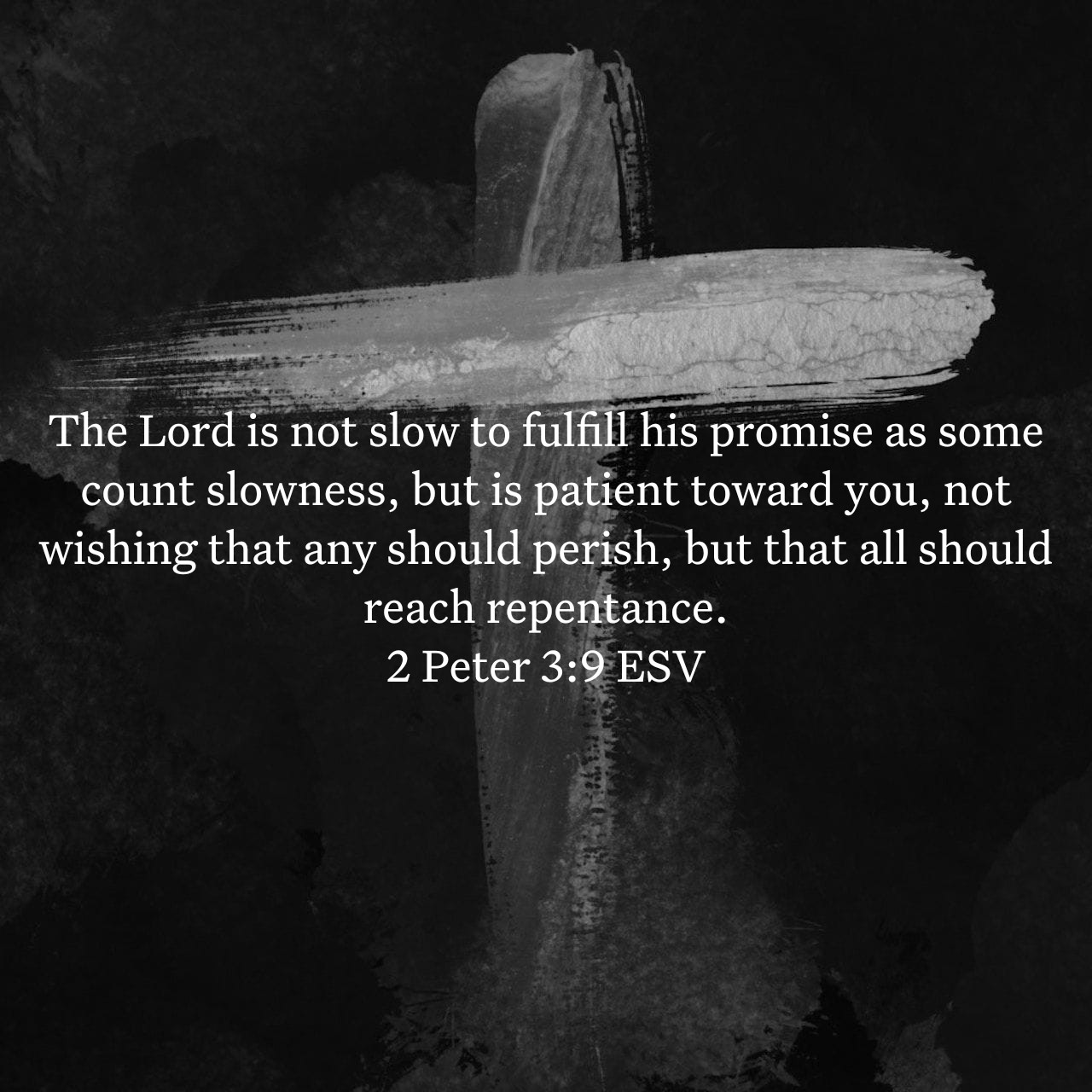Devotional 6 October 2025

Peter isn’t calling us to do spiritual calculus when he says that one day is as a thousand years and a thousand years as one day. He is telling us that God’s timeline isn’t bound by ours. The Lord’s delay is not evidence of neglect, but of mercy. As in Psalm 90:4, God’s perspective on time reminds us that He acts in perfect wisdom, not haste. His apparent “delay” is the space in which grace still works: the open door through which repentance may still enter (Ezek. 33:11; Rom. 2:4).
The scoffers in Peter’s day mocked God’s patience, claiming that His promises had failed (2 Pet. 3:4). But Peter turns their accusation into assurance: what they call slowness is salvation. The same Word that once created the heavens will also judge them (v. 10). The day of the Lord will come suddenly, exposing every hidden work and burning away all that cannot last (1 Thess. 5:2; Mal. 3:2–3).
So Peter presses the question: If everything around us will one day dissolve, what kind of lives should we live? (v. 11). The answer is holiness, godliness, and hopeful endurance. We wait not in idle speculation but in active obedience, “hastening the coming of the day of God” (v. 12). Our hope is not in predicting His return, but in living faithfully until He does.
Every day that Christ tarries is a mercy and a test, a mercy to the lost and a test of the believer’s hope (Rom. 8:24–25). The delay proves our faith: that we trust the promise of “new heavens and a new earth in which righteousness dwells” (v. 13).